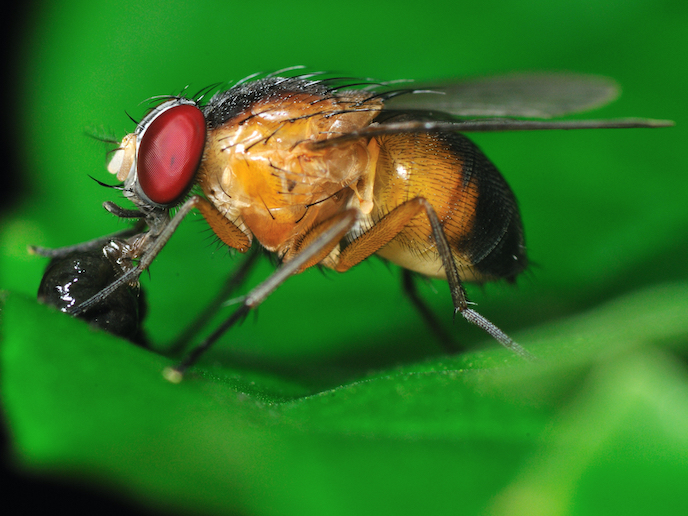Understanding how the brain processes and remembers sensory experiences
Odours, taste and other sensory experiences are very individual and have an impact on behaviour and decisions. Food generally tastes and smells better when we are hungry, while scientists have long known the brain has a strong memory for bad or poisonous foods that make people sick, instilling aversion. “Internal states such as hunger play a big role and are also represented in the same parts of the brain where memory is formed. These circuits are not only important to induce long-term memory, but they shape all aspects of behaviour, even very dynamic, changing aspects,” explains FlyContext project coordinator Ilona Grunwald Kadow, professor in the Department of Neural Circuits and Metabolism at the Technical University of Munich’s School of Life Sciences. The project, supported by the European Research Council, was able to look into the fruit fly brain and manipulate the neurons to see how the brain processed certain information and how these processes change and adapt to hunger or other internal states. “The fly reaches different conclusions, although it gets the same sensory information,” adds Grunwald Kadow. “We also found that fly brain circuits – and presumably those of other animals – are highly interconnected between different brain regions, impacting on many levels of the brain and how it perceives information. “Individual neurons respond to a number of different things and they integrate them. It is a complex network that is highly plastic and can be shaped by long-term memory, but also by short-term experiences. We think the human brain is similar,” she explains.
Reward neurons
A key set of neurons called dopaminergic neurons – often referred to as ‘reward’ neurons and important for learning – are involved in rewarding or telling the fly something good has happened. Others ‘punish’ or convey that something bad is happening or has happened. But surprisingly they also detect hunger. Through dopaminergic neurons, hungry flies show increased perseverance in tracking a food odour even without a food reward at the end. “What we didn’t anticipate was the fly did not give up when it was not successful but tried harder and ran longer to get to the goal, the food,” Grunwald Kadow notes. This suggests that past experience is integrated with need, informing the fly’s choices.
Changes observed in mating
Empirical evidence of humans shows that pregnancy changes perceptions such as odours and taste. “Our data suggests that mating or exposure to a male induces changes in several layers of the nervous system in the female fly – from sensory neurons to memory centres,” she says. Sensory neurons taste or smell cellular compounds, among them are the nutrients polyamines. “Virgin females are not so interested in these polyamines but upon mating they become very interested and they use them to find food and a place to lay their eggs,” adds Grunwald Kadow.
Novel imaging techniques
The team used novel imaging techniques to look at the neural activity of the entire fly brain and simultaneously observed dynamics of the fly’s behavioural responses and how it made choices. To observe the information encoded in the neurons, the team used light field imaging with a microscope with a multiple array of tiny lenses. “This allows us to observe the whole brain very fast, instead of one area of the brain after another, because neurons respond quickly and in many brain areas at the same time,” says Grunwald Kadow. This was used to map all the synapses and the neurons and how they ‘talk’ to each other. “The imaging was a game changer because it allowed us to observe how the whole brain changes its state during hunger, movement or sleep,” she remarks.
Keywords
FlyContext, fruit fly, brain, neurons, odour, taste, dopaminergic neurons, polyamines

